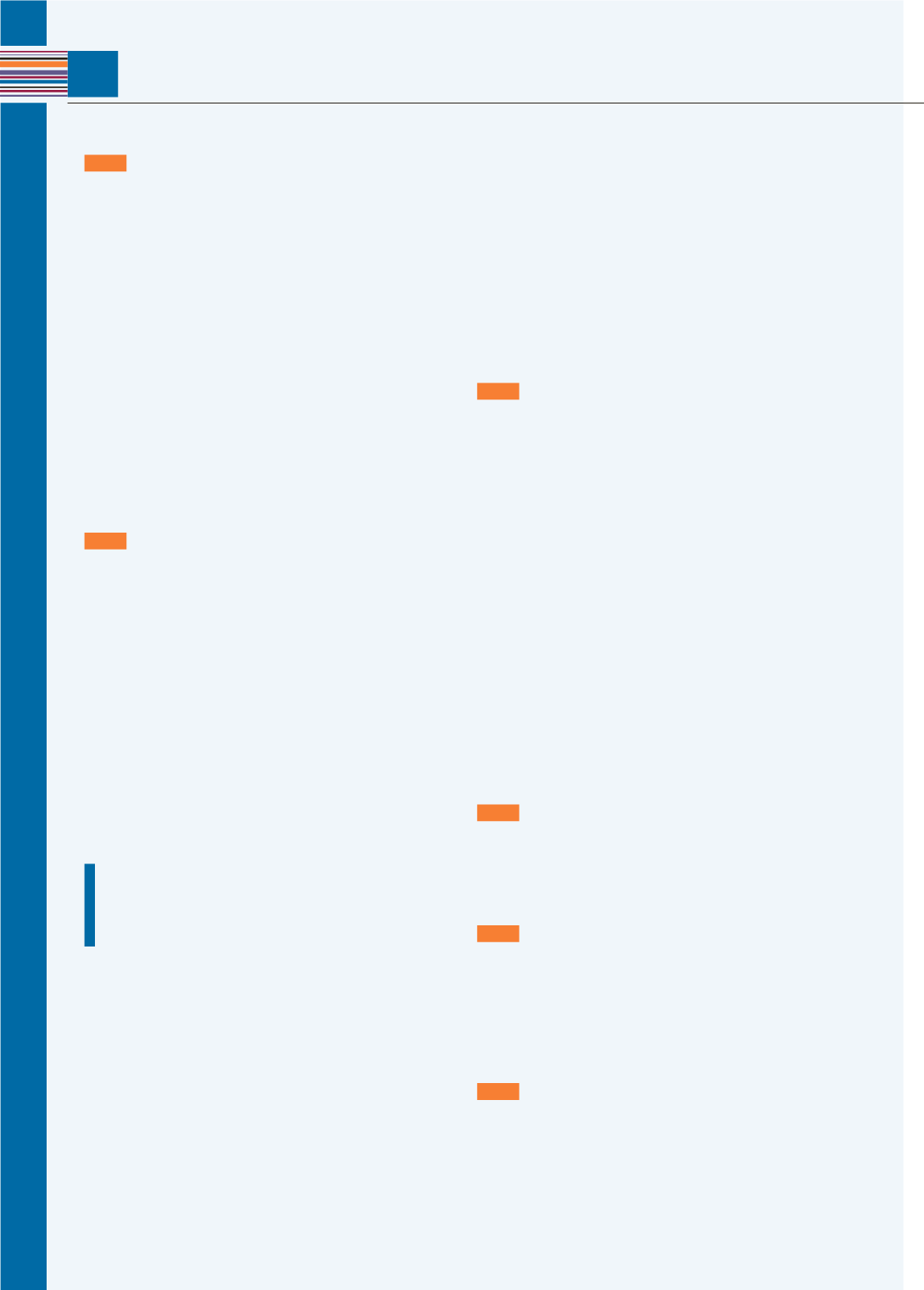
LANGUAGE REFERENCE
134
5
GRAMMAR
G1
SECOND CONDITIONAL
Form the second conditional in the following way:
if
-clause
+ main clause
if
+ past simple
would/could/might
, etc.
If she
knew
the answer, she
could help
you.
If they
gave
a discount,
would
you
buy
it?
We use the second conditional to talk about an
unreal situation in the present or future.
As with the first conditional, we can put the main
clause first.
I
’d help
you if I
had
time.
WERE
AND
WAS
Both are possible in the second conditional, with no
change in meaning.
If I
was
a politician, I’d make some big changes.
If I
were
a politician, I’d make some big changes.
When we give advice, we often use
were.
If I
were
you, I’d take the job.
G2
COMPARISON
Form the comparative of one-syllable adjectives
by adding
-er
, and the superlative of one-syllable
adjectives by adding -
est
.
great – greater – greatest big – bigger – biggest
With two-syllable adjectives ending in -
ow
and -
er
,
add -
er
or -
est
. With adjectives ending in -
y
, remove
-
y
and add -
ier
or -
iest
.
narrow – narrower – narrowest
clever – cleverer – cleverest
happy – happier – happiest
Form the comparative of other two-syllable adjectives
and longer adjectives by adding
more
before the
adjective, and the superlative by adding
most
before
the adjective.
hopeful – more hopeful – most hopeful
interesting – more interesting – most interesting
!
There are exceptions. Put
more
/
most
(not
-er
/
-est
)
before one syllable adjectives which are past
participles. For example:
tired – more tired – most tired
lost – more lost – most lost
LESS
AND
LEAST
Use
less
or
least
before any adjective. The number of
syllables is not important.
It’s
less
expensive.
It’s
the least
expensive.
IRREGULAR ADJECTIVES
The adjectives
good
and
bad
are irregular and do not
follow the rules above.
good – better – best bad – worse – worst
MODIFIERS
Modifiers help us to comment on the size of the
difference in the comparison. To talk about a large
difference, use
a lot
or
much
. To talk about a small
difference, use
a little
or
not much
.
China is
a lot
more populated than Norway.
Italy is
n’t much
bigger than England.
AS … AS
Use
as
+ adjective +
as
to say there is no difference.
The twins are
as tall as
each other.
Use
not as
+ adjective +
as
to make the adjective
weaker.
I’m
not as sure as
you that this is a good idea.
The film was
n’t as good as
I expected it would be.
KEY LANGUAGE
KL
THE LANGUAGE OF PRESENTATIONS
BEGINNING A PRESENTATION
I’d like to introduce my colleagues …
STATING THE MAIN PURPOSE OF THE PRESENTATION
Our purpose today is to …
GIVING THE PLAN/STRUCTURE
My presentation is divided into three/four parts.
If you have any questions, we’d be pleased to answer
them at the end of the presentation.
TALKING ABOUT A NEW POINT
Moving on now, …
This brings me to my next point.
REFERRING TO A VISUAL AID
Please look at the screen.
ENDING A PRESENTATION
Now, let me summarise our main points.
Thank you very much for your attention.
Are there any questions?
VOCABULARY
V1
ADJECTIVES, ADVERTISING
attention-grabbing, catchy, commercial (n), dull,
effective, endorse, exotic, eye-catching, humorous,
intriguing, irritating, jingle, logo, misleading, original,
persuasive, powerful, promote, recognisable, romantic,
shocking, slogan, sophisticated, sponsorship, witty
V2
WORDS WITH A SIMILAR MEANING
(CONNECTED TO CHANGE)
alter – change
enhance – improve
distort – change something’s shape/sound
exaggerate – make something seem better/larger/
worse
manipulate – skilfully control/move
V3
WORD COMBINATIONS
advertising manager, animated cartoons, attractive
target, breakfast cereals, cartoon characters, fast
food, food products, interactive websites, junk food,
media analysis, persuasive message, school holidays,
television advertisement, TV commercials, vast sums


